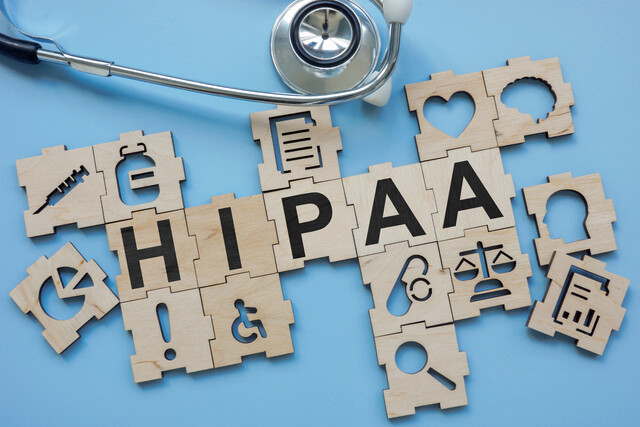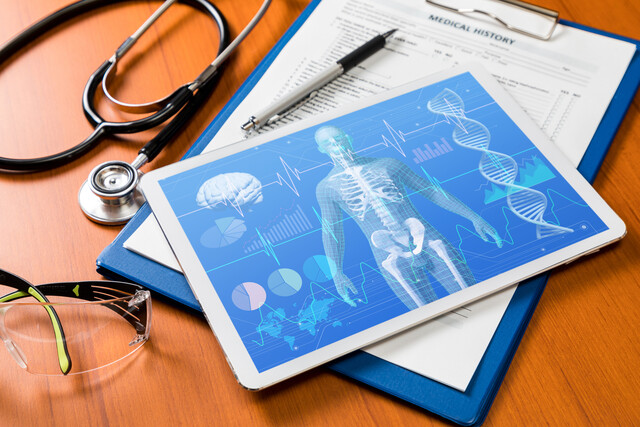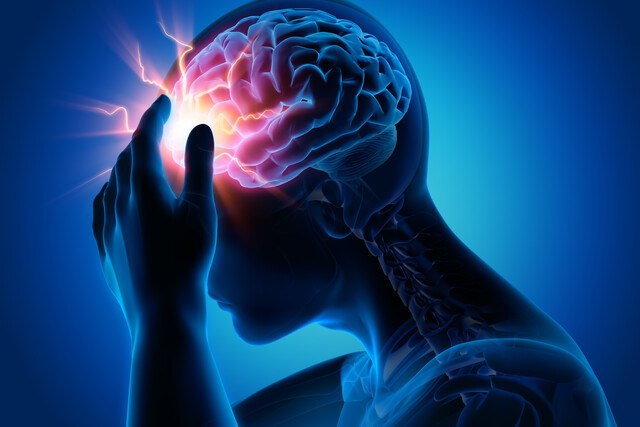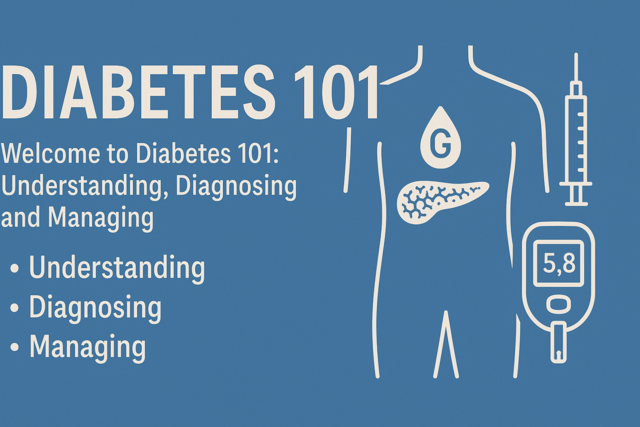Online Class: ICD-10 — Medical Coding

no certificate
with CEU Certificate*
-
23Lessons
-
34Exams &
Assignments -
3,488Students
have taken this course -
17Hours
average time -
1.7CEUs
Course Description
ICD-10 Mastery: Revolutionizing Medical Classification & Billing Systems
In the ever-evolving landscape of healthcare, accurate diagnosis and procedure classification is paramount. Enter the ICD-10, the state-of-the-art successor to the ICD-9. This revolutionary system isn't just an update; it's a paradigm shift that brings about intricate detailing, future-ready scalability, and unparalleled advancements tailored for modern medicine.
Delving Deeper into ICD-10:
-
A Leap in Evolution: Understand the historical progression from ICD-9 to ICD-10, and appreciate the nuances that make ICD-10 a monumental leap in medical classification systems.
-
ICD-10-CM - The Diagnostic Maestro: Spearheaded by the esteemed Centers for Disease Control and Prevention (CDC), the ICD-10-CM emerges as the gold standard for diagnosis classification. Grasp the intricacies of this system, which not only enhances accuracy but also encapsulates a spectrum of medical conditions with its 3 to 7 alpha-numeric digits. Moreover, its full code titles offer a granular insight, ensuring clarity and precision.
-
ICD-10-PCS - The Procedural Powerhouse: Developed by the Centers for Medicare & Medicaid Services (CMS), the ICD-10-PCS is a game-changer for healthcare facilities and providers across the U.S. Specifically tailored for inpatient hospital settings, this classification system is intricately designed to cater to billing requirements, ensuring streamlined operations and financial transparency.
-
Enhanced Scope & Scalability: Delve deep into how the ICD-10 provides a broader scope, allowing for the inclusion of emerging diseases, novel treatments, and innovative medical technologies. Its modular and expandable nature ensures it remains relevant, reflecting the continuous advancements in medicine.
-
The Paradigm of Precision: With ICD-10, gone are the days of ambiguous categorizations. The system brings forth a higher degree of specificity, allowing healthcare providers to capture detailed patient information, leading to better patient care and efficient billing processes.
Why Embrace the ICD-10?
For healthcare professionals, understanding and integrating the ICD-10 system is not merely about compliance; it's about pioneering excellence. By adopting this refined classification system, providers are not only aligning with global standards but are also ensuring optimized patient care, accurate billing, and efficient administrative workflows.
Join Us for a Comprehensive Exploration:
Our course is designed not just as an informational guide but as an immersive experience. Whether you're a medical coder, a healthcare administrator, or a billing professional, this course promises to equip you with the knowledge and skills to navigate the ICD-10 landscape with confidence and expertise.
In a world where precision in medical classification can directly impact patient outcomes and institutional efficiency, ICD-10 emerges as the beacon of excellence. Dive deep into its realm and emerge as a vanguard in healthcare excellence. Join us in this enlightening journey.
- Completely Online
- Self-Paced
- Printable Lessons
- Full HD Video

- 6 Months to Complete
- 24/7 Availability
- Start Anytime
- PC & Mac Compatible
- Android & iOS Friendly
- Accredited CEUs

Course Lessons
Lesson 1. The Global Language of Health: Unveiling the ICD-10 System
Rooted in an advanced coding system, ICD-10 adeptly categorizes medical conditions and procedures, supporting efficient healthcare service delivery and fostering accurate communication with insurers. Its attributes of thoroughness and scalability are pivotal, allowing healthcare systems to adapt and thrive amidst continuous medical advancements.Lesson 2. ICD-10 Insights: Navigating Diagnostic and Procedure Codes
Medical billing hinges on understanding acute and chronic conditions and mastering ICD-10 codes for comprehensive patient assessments. By analyzing diagnoses and leveraging mapping techniques, professionals ensure quality reporting, research, and improved health outcomes.Lesson 3. Mastering the Maze of U.S. Medical Billing Systems
Prospective Payment Systems (PPS) like the IPPS revolutionized hospital billing by categorizing diagnoses into DRGs, standardizing payments while balancing patient care complexity and the resources used. This payment system encourages equitable resource allocation, stabilizing healthcare financials and optimizing operational efficiencies.Lesson 4. Decoding Medical Narratives: Translating Documentation into Codes
Understanding the intricate dance between diagnosis and procedure codes is crucial for coders to ensure medical accuracy and operational efficiency. By linking clinical language to codes smartly, coders connect patient stories to the healthcare system seamlessly.Lesson 5. ICD-10-CM: The Heartbeat of Global Health Standards
The Alphabetic Index within ICD-10-CM functions like a dictionary, with bold main terms and refined subterms leading to precise diagnostic codes. This organization ensures healthcare practitioners can efficiently identify and apply relevant codes, fostering clarity and accuracy in patient documentation and health statistics.Lesson 6. ICD-10 Transitions: Bridging the Gap with GEMs
ICD-10-CM's more detailed structure compared to ICD-9-CM enables refined patient diagnosis and treatment documentation, enhancing epidemiological research and healthcare delivery. The transition highlights the system's expanded chapter categories, allowing precise communication of clinical details and improved health outcomes.Lesson 7. Turning Diagnosis into Data: Exploring Infectious Diseases and Neoplasms
Interpreting infectious diseases through ICD-10-CM coding involves a complex dance between comprehending epidemiological trends and ensuring accurate classifications. Through diligent application, coders enable effective surveillance and intervention measures in healthcare systems.Lesson 8. Decoding Blood and Immune System Disorders
Nutritional anemias emerge from dietary insufficiencies and require diligent documentation to capture their full impact on health. Apart from common deficiencies, new findings highlight the roles of minerals like copper and selenium in anemia, broadening the spectrum of nutritional disorders.Lesson 9. Precision in Coding Mental and Nervous Disorders
Understanding ICD-10-CM codes for mental health disorders enables clinicians to map complex conditions like schizophrenia and anxiety into actionable healthcare solutions. This process ensures targeted interventions, enhancing therapeutic outcomes for diverse psychiatric conditions.Lesson 10. Mastering ICD-10-CM for Eye and Ear Disorders
Precision in ICD-10-CM coding for eye and ear diseases illuminates the path to comprehensive patient care, from coding styes and pink eye to addressing hearing loss. By mapping each condition meticulously, practitioners foster a narrative of health empowerment and improved medical outcomes.Lesson 11. Unlocking the Complexities of Medical Codes for Circulatory and Respiratory Ailments
The ICD-10-CM codes guide the medical community in diagnosing and treating circulatory and respiratory diseases, reflecting the complexity of these organ systems. Coders must be highly knowledgeable and detail-oriented to ensure that specific disease codes convey the accurate clinical picture.Lesson 12. Beyond the Surface: Mastering ICD-10-CM Coding for Digestive and Skin Conditions
Understanding the digestive system, from oral cavity to liver disorders, is paramount in ICD-10-CM coding, offering insights into various conditions that influence patient management strategies. From documenting daily habits influencing gastrointestinal health to understanding intricate skin disorders, the guidelines provide clarity for effective coding.Lesson 13. The Art of Coding: Navigating Musculoskeletal and Genitourinary Complexities
This comprehensive overview of ICD-10-CM codes for musculoskeletal and genitourinary diseases underscores the significance of accurate medical coding in healthcare documentation and patient care pathways. By delving into the specifics of these chapters, professionals can improve compliance and enhance their analytical capacity within the healthcare system.Lesson 14. Guiding Precision: ICD-10-CM in Maternal and Neonatal Health
With chapters dedicated to both mothers and infants, ICD-10-CM coding captures the intricate healthcare needs during pregnancy and the perinatal period, focusing heavily on conditions like gestational diabetes and hypertensive disorders. Coders hold a pivotal role in parsing these complexities, leading to more robust maternal and child health practices globally.Lesson 15. Comprehensive Guide to ICD-10-CM Chapter 17
Within Chapter 17 of ICD-10-CM lie the codes to life-altering conditions present from birth, like heart defects and cleft palates. These codes capture the essence of congenital conditions, guiding interventions and enabling coordinated care efforts across clinical settings.Lesson 16. Understanding Symptoms and Signs in Medical Coding
Understanding ICD-10-CM Chapter 18 empowers healthcare providers to accurately code symptoms when specific diagnoses are elusive. This comprehensive approach helps streamline patient care, billing, and research by utilizing codes R00 to R99 for various bodily systems.Lesson 17. Mastering ICD-10-CM: Injury and Poisoning
Accurate classification of burns, poisonings, and frostbite accentuates the chapter’s focus on unexpected health challenges emerging from external factors. The meticulous coding of these conditions ensures clarity and adequacy in medical interventions for optimal patient outcomes.Lesson 18. ICD-10-CM Chapter 20: Comprehensive Guide to External Causes
Legal, military, and medical device-related incident codes offer insights into environments affected by unrest or advancing technology, guiding rehabilitation and healthcare advancements. These categories help organizations maintain vigilance and continually evolve with societal needs.Lesson 19. Unlocking Chapter 21: A Detailed Exploration of ICD-10-CM Guidelines
Understanding healthcare through ICD-10-CM Chapter 21 involves recognizing factors like routine exams and social determinants that influence medical interactions. This chapter emphasizes documenting preventive health and socio-economic influences, fostering a holistic approach to patient care.Lesson 20. Shaping Healthcare with ICD-10-PCS: A Detailed Examination
ICD-10-PCS' architectural design ensures comprehensive procedural documentation through distinct sections from medical and surgical to ancillary services. The structure aids healthcare providers in precise procedure coding which, in turn, supports robust health data analysis and management.Lesson 21. ICD-10-PCS: Unraveling Coding Complexity
ICD-10-PCS codes allow for flexibility and detail in documenting various surgical approaches, devices, and qualifiers, adapting to diverse medical scenarios. As such, it creates a comprehensive narrative of patient care that supports both clinical and administrative processes.Lesson 22. ICD-10-PCS Overhaul
The ICD-10-PCS coding system not only standardizes medical records but also plays a crucial role in promoting patient safety and optimizing billing and insurance processes. Mastery of these codes is vital for healthcare professionals aiming to deliver high-quality, efficient patient care.Lesson 23. Unraveling the Complexities of ICD-10-PCS Ancillary Codes for Enhanced Healthcare Documentation
Within the ICD-10-PCS framework, the Ancillary sections stretch across various procedural spectrums, including imaging and mental health, forming a foundation for accurate and detailed healthcare coding. This mastery not only professionals with skills but propels patient care and health information systems towards new heights of clarity and efficiency.
Learning Outcomes
- Define the purpose of the ICD-10 coding system by explaining its role in standardizing the communication of diseases and procedures in healthcare
- Demonstrate understanding of ICD-10-CM and ICD-10-PCS by accurately classifying diagnoses and procedures using their alphanumeric and multiaxial code structures
- Demonstrate the ability to accurately classify and code medical diagnoses and procedures using ICD-10 guidelines.
- Recognize key medical billing terms related to ICD-10-CM and ICD-10-PCS codes used in healthcare.
- Demonstrate the ability to accurately complete CMS-1500 and CMS-1450 forms by aligning diagnosis codes with corresponding procedural ones.
- Identify key elements of Medicare payment systems, including IPPS and OPPS, and describe their impact on healthcare billing and reimbursement efficiency.
- Differentiate between inpatient and outpatient coding requirements within medical billing systems and justify coding decisions based on healthcare setting.
- Distinguish between diagnosis and procedural codes and accurately apply them to medical documentation using ICD-10 guidelines.
- Demonstrate the ability to accurately categorize diseases and health conditions using the ICD-10-CM coding system for improved healthcare communication.
- Identify the structure of ICD-10-CM codes and apply conventions and guidelines to ensure precise medical coding in patient records and billing processes.
- Demonstrate the use of ICD-10-CM guidelines to accurately code and report a clinical scenario involving acute respiratory failure due to chronic obstructive pulmonary disease (COPD), ensuring precision in the coding steps and compliance with standardized conventions.
- Define the role of General Equivalence Mappings (GEMs) in transitioning from ICD-9-CM to ICD-10-CM/PCS by demonstrating their application in maintaining data consistency across healthcare platforms.
- Apply coding guidelines to accurately assign and sequence codes for intestinal infectious diseases using ICD-10-CM classifications.
- Demonstrate mastery of lesson content at levels of 70% or higher.
Additional Course Information

- Document Your Lifelong Learning Achievements
- Earn an Official Certificate Documenting Course Hours and CEUs
- Verify Your Certificate with a Unique Serial Number Online
- View and Share Your Certificate Online or Download/Print as PDF
- Display Your Certificate on Your Resume and Promote Your Achievements Using Social Media

Choose Your Subscription Plan
No Certificate / No CEUs
This course only
| Includes certificate | X |
| Includes CEUs | X |
| Self-paced |

|
| Instructor support |

|
| Time to complete | 6 months |
| No. of courses | 1 course |
Certificate & CEUs
This course only
| Includes certificate |

|
| Includes CEUs |

|
| Self-paced |

|
| Instructor support |

|
| Time to complete | 6 months |
| No. of courses | 1 course |
Certificates & CEUs
Includes all 600+ courses
| Includes certificate |

|
| Includes CEUs |

|
| Self-paced |

|
| Instructor support |

|
| Time to complete | 12 Months |
| No. of courses | 600+ |
Certificates & CEUs
Includes all 600+ courses
| Includes certificate |

|
| Includes CEUs |

|
| Self-paced |

|
| Instructor support |

|
| Time to complete | 24 Months |
| No. of courses | 600+ |
Student Testimonials
- "I thought the course was very informative and helpful." -- Desiree V.
Related Courses
-
 8 hours
0.8 CEUs
Medical Office Management
+ More Info
8 hours
0.8 CEUs
Medical Office Management
+ More Info
-
 6 hours
0.6 CEUs
HIPAA Compliance 101
+ More Info
6 hours
0.6 CEUs
HIPAA Compliance 101
+ More Info
-
 20 hours
2.0 CEUs
Introduction to Medical Coding
+ More Info
20 hours
2.0 CEUs
Introduction to Medical Coding
+ More Info
-
 5 hours
0.5 CEUs
End of Life Care
+ More Info
5 hours
0.5 CEUs
End of Life Care
+ More Info
-
 17 hours
1.7 CEUs
Medical Terminology 201
+ More Info
17 hours
1.7 CEUs
Medical Terminology 201
+ More Info
-
 7 hours
0.7 CEUs
Alzheimer's Disease 101
+ More Info
7 hours
0.7 CEUs
Alzheimer's Disease 101
+ More Info
-
 6 hours
0.6 CEUs
Advocacy for Elderly Patients
+ More Info
6 hours
0.6 CEUs
Advocacy for Elderly Patients
+ More Info
-
 7 hours
0.7 CEUs
Understanding Concussions
+ More Info
7 hours
0.7 CEUs
Understanding Concussions
+ More Info
-
 33 hours
3.3 CEUs
Comprehensive Medical Terminology 1 & 2
+ More Info
33 hours
3.3 CEUs
Comprehensive Medical Terminology 1 & 2
+ More Info
-
 5 hours
0.5 CEUs
Aging and Long Term Care
+ More Info
5 hours
0.5 CEUs
Aging and Long Term Care
+ More Info
-
 22 hours
2.2 CEUs
Anatomy and Physiology 101
+ More Info
22 hours
2.2 CEUs
Anatomy and Physiology 101
+ More Info
-
 7 hours
0.7 CEUs
Caring for Seniors
+ More Info
7 hours
0.7 CEUs
Caring for Seniors
+ More Info
-
 4 hours
0.4 CEUs
Diabetes 101
+ More Info
4 hours
0.4 CEUs
Diabetes 101
+ More Info
-
 12 hours
1.2 CEUs
Microbiology Mastery: Unlocking the Foundations of Life
+ More Info
12 hours
1.2 CEUs
Microbiology Mastery: Unlocking the Foundations of Life
+ More Info
-
 18 hours
1.8 CEUs
Medical Terminology 101
+ More Info
18 hours
1.8 CEUs
Medical Terminology 101
+ More Info
-
 2 hours
0.2 CEUs
Careers in Healthcare
+ More Info
2 hours
0.2 CEUs
Careers in Healthcare
+ More Info






